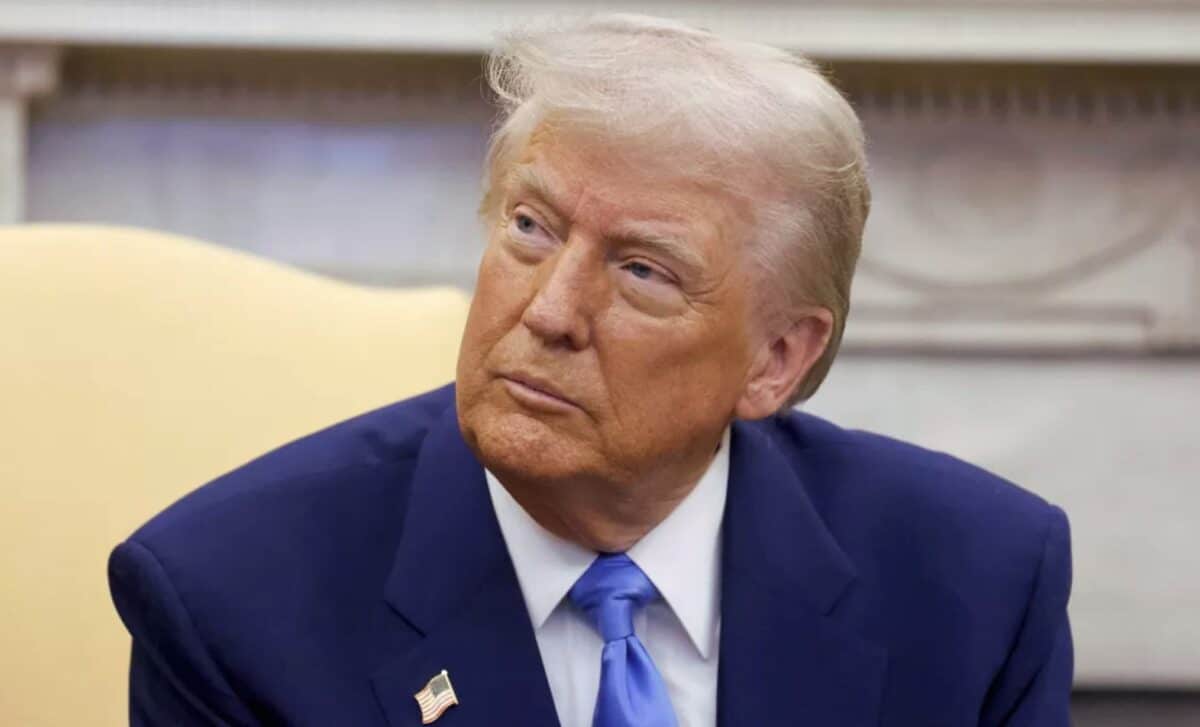In a biting parody, Saturday Night Live (SNL) recently lampooned President Donald Trump’s announcement of sweeping tariffs, framing it as part of his broader, controversial plan to “Make America Great Depression Again” (MAGDA).
SNL’s James Austin Johnson, portraying Trump, humorously exaggerated the president’s economic vision, suggesting a return to the disastrous economic policies of the early 20th century.
This satirical sketch comes on the heels of Trump’s recent remarks about tariffs, where he argued that they were the key to restoring the United States’ economic might.
The portrayal, however, raised a number of important questions about the true impact of such policies, especially when considering their historical context.
The Promise of Protectionism: Tariffs as the ‘Backbone’ of Economic Revival
Trump’s recent tariff proposal was framed as a bold step to revitalise the American economy. According to the president, tariffs—taxes on imported goods—would be the “backbone” of his economic strategy.
He argued that tariffs, far from being a burden on consumers, would bolster American wealth, claiming that they would help create an economy so prosperous that Americans would soon be “too wealthy.”
However, economists remain sceptical of these claims. Tariffs, while raising government revenue, tend to lead to higher prices for consumers, as businesses pass on the additional costs of imported goods.
This often results in inflation, which ultimately undermines the very consumers the policy intends to protect. According to historical data, the imposition of high tariffs during the Great Depression, particularly the Smoot-Hawley Tariff of 1930, worsened the economic downturn by sparking retaliatory measures from foreign nations and reducing global trade.
Trump’s Historical Missteps: Revisiting the Great Depression and Tariffs
In his speech, Trump argued that the Great Depression could have been avoided had the U.S. maintained its tariff-based system, which he claimed had made America the wealthiest nation from 1789 to 1913. He drew a direct line between the introduction of the income tax in 1913 and the subsequent economic downturn.
While the U.S. did rely heavily on tariffs during this period, historical evidence suggests that the introduction of the income tax was not the cause of the Great Depression.
The Smoot-Hawley Tariff Act, passed in 1930, is widely considered to have exacerbated the global economic crisis by raising tariffs on thousands of goods, triggering a steep decline in international trade.
As such, Trump’s interpretation of history seems oversimplified, ignoring the broader, more complex factors that contributed to the financial collapse.
The president’s latest tariff proposal thus echoes an old, controversial approach to economic policy, one that many experts argue is unlikely to achieve the prosperity he envisions.









